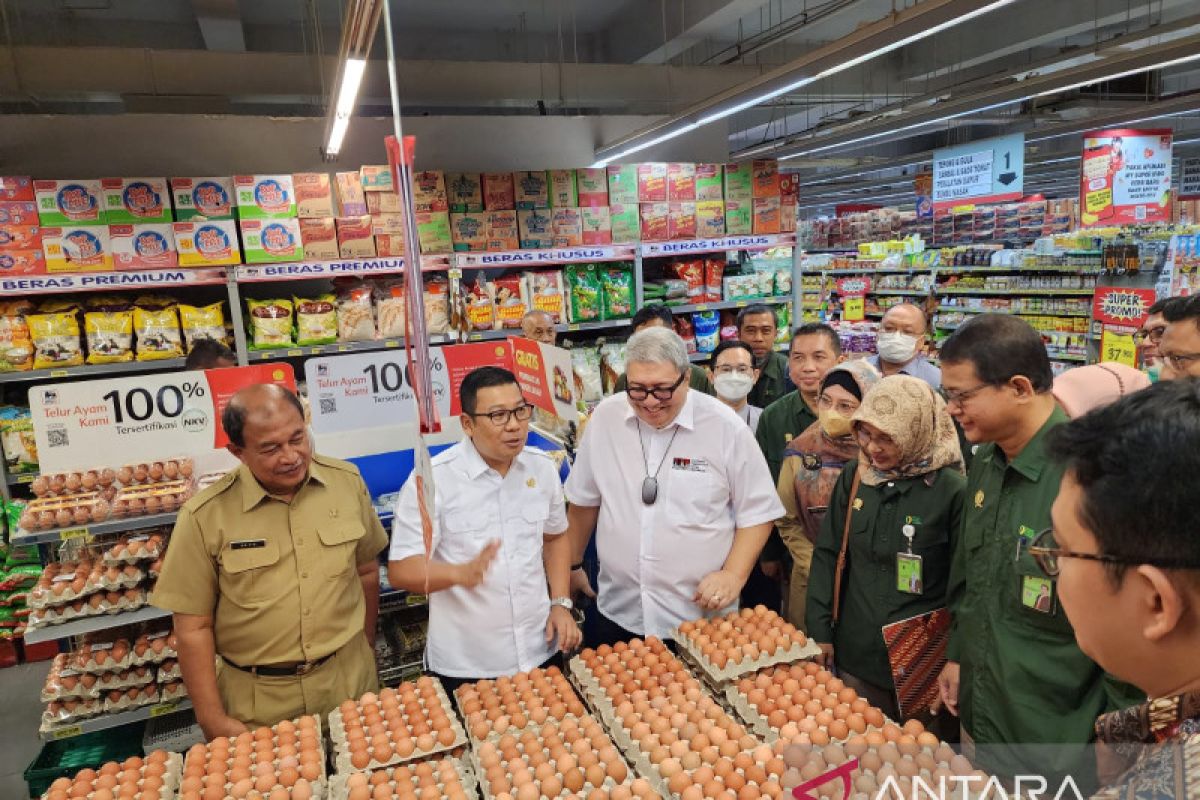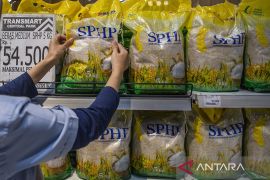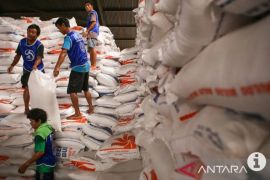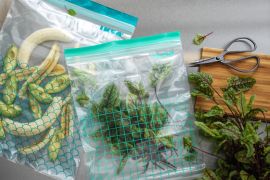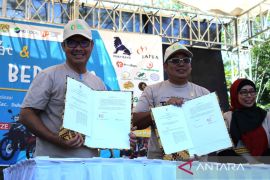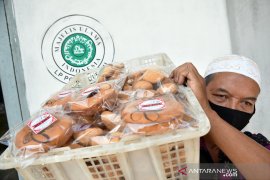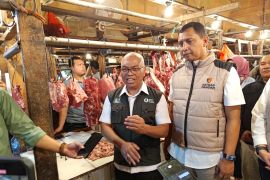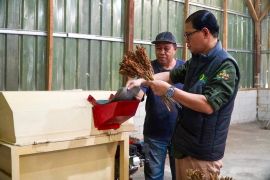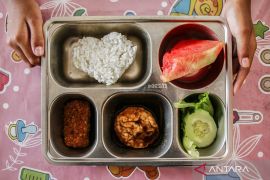"Earlier we checked permits, labels, and food nutrition at Superindo Sawangan. This activity was in accordance with the mandate of Presidential Decree 66 of 2021, in which the NFA has been mandated to ensure compliance with safety, quality, labeling, nutrition, and food's freshness," NFA head Arief Prasetyo Adi said in a statement received here on Monday.
The review of food safety requirements was carried out by NFA through the Central Food Safety Competency Authority (OKKP) by taking fresh food samples and testing them for active ingredients of organophosphate pesticides, he informed.
“Today, we have checked a number of samples of fresh food commodities, including potatoes, spinach, grapes, chilies, broccoli, onions, chicken, mackerel, and cabbage," Adi said.
Based on the checks, several products such as spinach, grapes, chilies, broccoli, and onions were included in the safe category, including mackerel and chicken that were free of formaldehyde, he informed.
Meanwhile, potato and cabbage products will be re-checked at an accredited laboratory to ensure their safety, he added.
According to him, through this effort, NFA is committed to ensuring the safety of fresh food consumed by the public, as directed by the President, who has emphasized the importance of food safety amid increasing public demand for food.
"We are doing it in detail and one by one. I have conveyed that samples that are indicated to have residue content above the threshold must be tested further at an accredited laboratory and traced to the source of supply," he said.
Currently, 11 provinces have implemented routine fresh food safety surveillance, and other provinces will follow the activity, he informed.
Testing for contamination with pesticide residues and formalin as well as compliance with the requirements for fresh food packaging labels has been carried out by NFA at seven distribution locations—Kramat Jati Market, Mayestik Market, Bogor Anyar Market, Krauk Market Banten, Gede Bage Main Market Bandung, and Lottemart and Hypermart in Bandung, Adi revealed.
He appealed to producers and business actors to apply Good Practices and Hygienic Sanitation from upstream, post-harvest, transportation, storage, and display to avoid contamination in fresh food commodities.
"The public must choose safe food that is recognized from the distribution permit and product labels in the packaging. They should also store the products, according to the instructions printed on the packaging so that product quality is guaranteed and (products are) safe for consumption," he said.
Related news: BPOM strives to ensure food security during COVID-19 pandemic
Related news: Need to build better public awareness on food safety: expert
Related news: FAO-WHO underscore critical role of food safety in life
Translator: Kuntum Khaira R, Resinta S
Editor: Azis Kurmala
Copyright © ANTARA 2023
